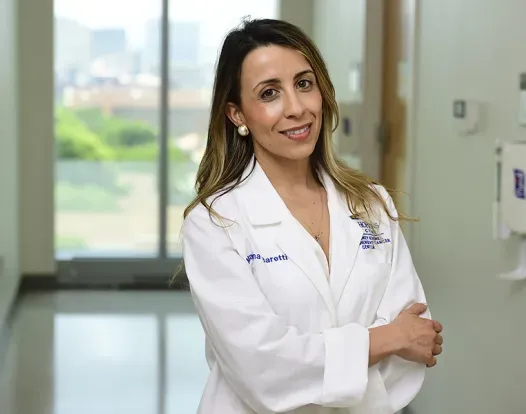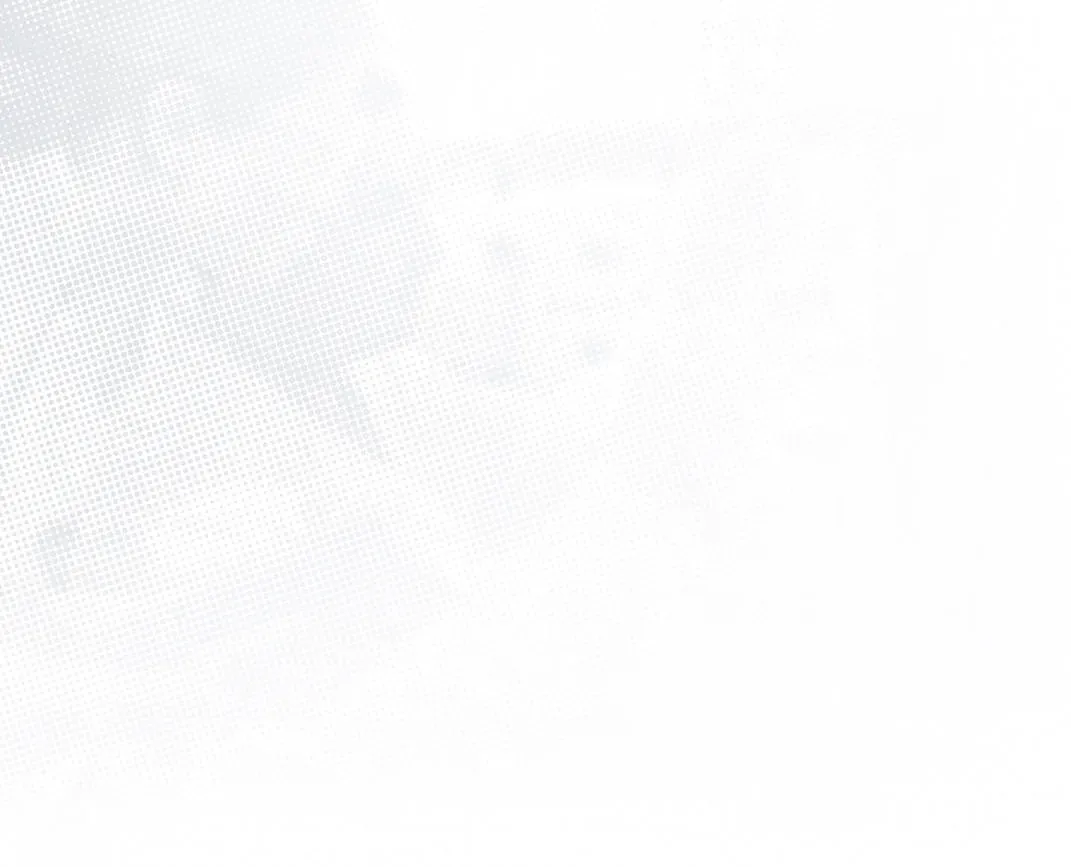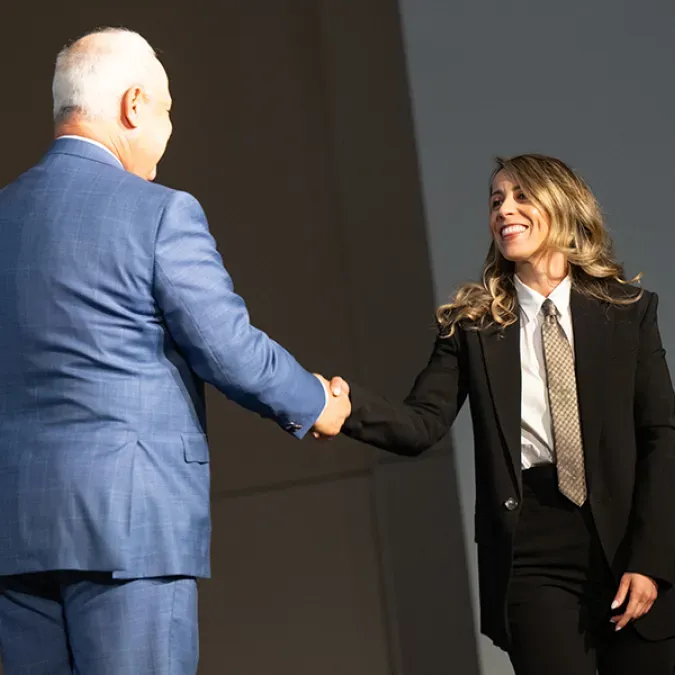These researchers dedicate their careers to finding new treatments and cures for people with cancer.


Cancer research can be an excruciatingly long game.
From that first glimmer of an idea until that hard-won “Eureka!” moment, most oncology investigators consider themselves fortunate if their hypothesis results in an effective, tangible treatment or cure within a decade. More often than not, it takes at least 10 to 15 years1 for any research idea to make the long journey from a researcher’s mind to the patient’s bedside.
But then, every once in a while, a project comes along and starts saving lives within just a few years of launching. Take, for example, the work of oncologist and two-time Conquer Cancer grant recipient Marina Baretti, MD, whose research focuses heavily on studying and treating rare gastrointestinal cancers.
Based at the Johns Hopkins Hospital in Maryland, Dr. Baretti—together with colleague Dr. Mark Yarchoan and their team at Johns Hopkins—launched a clinical trial in 2020 to test a vaccine for fibrolamellar carcinoma (FLC), a rare liver cancer with a high rate of recurrence. In the three years that followed, 12 people enrolled in that trial with impressive outcomes: 75 percent developed a strong immune response to the vaccine, indicating a decreased risk of recurrence. In one-third of enrolled patients, their tumors significantly shrank in size. Several showed complete remission from cancer.
The study's success ultimately led Dr. Baretti to apply for and win a Conquer Cancer Career Development Award, which she plans to use to further pursue improved treatment options for patients with advanced FLC. In this interview, Dr. Baretti talks about the impact of her Conquer Cancer grants; the desperate need for research funding experienced by early-career investigators; and what it’s like seeing her work have a tangible, immediate impact on patients’ lives.
CONQUER CANCER: What first motivated you to pursue cancer research as a career—particularly a rare cancer like fibrolamellar carcinoma?
DR. BARETTI: I came to focus on fibrolamellar carcinoma because it sits at the intersection of what motivates me most as an oncologist: addressing areas of true unmet need and being present for patients and families at such a vulnerable moment in their lives.
Fibrolamellar tends to affect adolescents and young adults, people who should otherwise be in the prime of their lives. And yet they face a disease with no established standard of care and very few dedicated resources. Early in my career, I met patients and families whose stories deeply moved me. They were navigating uncertainty without clear treatment pathways. That experience really stayed with me.
I realized that if I dedicated my research and clinical focus here, I could help build knowledge, contribute to developing new therapies, and create a sense of community for these patients. What began with individual patients who inspired me has grown into a true commitment to advance science, trials, and care in fibrolamellar so that this rare cancer is no longer left behind.
________________________________________________________________________________
Learn about other people conquering rare cancers.
________________________________________________________________________________
CONQUER CANCER: How did you feel when you learned that you’d be receiving a Conquer Cancer Career Development Award (CDA), and how will that funding help you advance your research?
DR. BARETTI: The Conquer Cancer CDA is essentially funding the second generation of the trial. It was the best news all year for me. It’s remarkable for so many reasons. Of course it’s an honor: You feel like you’re truly part of a group of physician-scientists and a program that has translated into significant improvements in how we care for patients. With the support of Conquer Cancer, we’re not just studying a disease — we’re building a future for those who face it.
But also, as a young investigator, it’s always extremely difficult to launch your career. You need the protected time to refine your research questions and how they can impact your clinical work. And often, when you first get started, you don’t have enough data to support your hypothesis. So, a grant like the Conquer Cancer Young Investigator Award or the Career Development Award can be really life- and career-shaping. It gives us the momentum to start our research portfolio and our career. And that funding opens up new avenues and opportunities because you’ve been able to get the data you need.
It’s beautiful because it gives you the ability—sometimes through networking—to meet other people and share ideas and data and start collaborations. There are people under this great umbrella who are motivated and moved by your same values, which are focused on caring for patients and finding better treatments and cures for them. You feel like you’re part of something much bigger.
________________________________________________________________________________
What is a rare cancer? Find out what rare cancers are and why they’re so challenging to treat.
________________________________________________________________________________
CONQUER CANCER: What would you say to a young investigator out there right now who’s struggling to find funding?
DR. BARETTI: Never give up. Giving up is not an option in this field if you really want to make a difference in people's lives . There are always avenues, and there are different ways that you can try to fund your research. And you should just go out there and seek those opportunities.
Find help from more seasoned mentors and advice from peers who might help you to navigate these more challenging times. Right now, our job is to stay focused and committed to our research and our patients. If we continue working with them as our priority, then we will find a way.
CONQUER CANCER: What does conquering cancer mean to you?
DR. BARETTI: To me, conquering cancer has a broad significance. It’s not just curing or eradicating cancer. For me, it’s about taking care of patients in a comprehensive, holistic way. We have to make sure we’re focusing not only on the cancer, but also on the person in front of us.
There are so many ways to take care of patients, from improving their quality of life to extending their life altogether. Both are extremely important goals that we should try to achieve. What I often tell my patients is that conquering cancer also means helping them live meaningful lives despite the disease. Even when a cure isn’t possible, we aim to give them control, dignity, and the best quality of life we can.
Conquering cancer is about persistence, innovation, and compassion. It’s about giving patients and their families hope in moments of fear and uncertainty, using everything we know—and discovering what we don’t yet—to change outcomes. It’s about tackling cancers with relentless curiosity and creativity. Ultimately, it’s about applying my skills, knowledge, and compassion to make a tangible difference, helping patients to not just survive, but to live with dignity, purpose, and possibility.
References:
1. The Pathway from Idea to Regulatory Approval: Examples for Drug Development
https://www.ncbi.nlm.nih.gov/books/NBK22930/
Last Updated: 09/01/25
